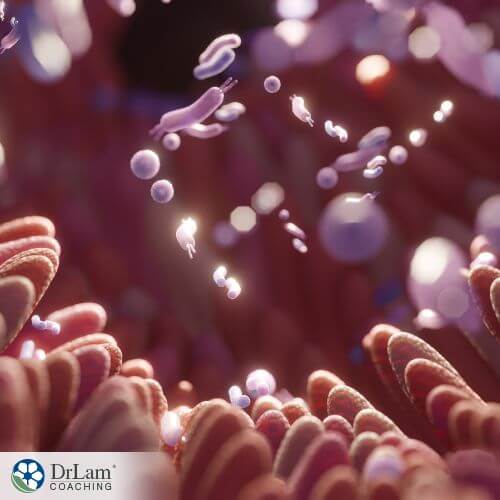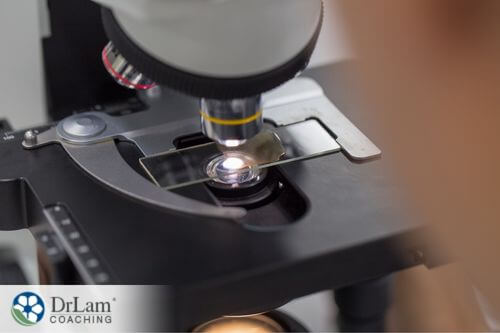 Your microbiome plays a vital role in multiple health issues. While many healthcare providers in holistic medicine have considered gut health as one of the most important factors in addressing health issues, conventional medicine may have started seeing the light, especially with increasing literature highlighting the cancer-microbiome connection. Studies suggest that your microbiome may both promote the occurrence of, and help you deal with, cancer.
Your microbiome plays a vital role in multiple health issues. While many healthcare providers in holistic medicine have considered gut health as one of the most important factors in addressing health issues, conventional medicine may have started seeing the light, especially with increasing literature highlighting the cancer-microbiome connection. Studies suggest that your microbiome may both promote the occurrence of, and help you deal with, cancer.
Though still in the initial stages of research, scientific papers increasingly point toward a cancer-microbiome connection. Awareness of this connection may also improve the effectiveness of therapy for certain cancerous tumors.
There are many different types of cancer. For the purposes of this article, however, we will focus on tumors.
There are three types of tumors: malignant tumors, benign tumors, and premalignant tumors. They all form the same way: when cells develop too rapidly and form an abnormal tissue mass. This can happen just about anywhere in the body. They also vary in size, from tiny to large.
The different malignant tumor types depend on the type of cells they originate from. Examples of these include the following:
Tumors start as a result of an overgrowth of new cells that form a grouping of tissue. We call this grouping of tissue a tumor. They may develop due to injuries, infections, and exposure to environmental toxins.
Your risk of malignant tumor formation increases according to the following criteria:
Please note that all these risk factors cause stress on the body and may initiate the body’s automatic stress response reaction. We refer to this automatic stress response reaction as the NeuroEndoMetabolic (NEM) stress response.
 Your NEM stress response initiates a chain reaction affecting the six circuits, composed of related organ systems, during times of stress. One of these reactions, inflammation, aims at trying to rid your body of any foreign substances that may negatively influence your health. Inflammation usually abates once the stressful situation is dealt with.
Your NEM stress response initiates a chain reaction affecting the six circuits, composed of related organ systems, during times of stress. One of these reactions, inflammation, aims at trying to rid your body of any foreign substances that may negatively influence your health. Inflammation usually abates once the stressful situation is dealt with.
A continuous activated NEM stress response and continuous inflammatory response, however, could cause severe health issues to develop. One of the main causes of inflammation, gut dysbiosis, refers to an imbalance between good and bad gut bacteria in the gastrointestinal tract. One of the symptoms associated with gut dysbiosis is irritable bowel syndrome (IBS). But inflammation is also associated with the formation of certain types of cancer or malignant tumors. Inflammation can, over time, cause damage to DNA cells and affect cellular growth and division.
But we do not only find micro-organisms in the gastrointestinal tract. We find them throughout the whole body. We refer to this as the microbiome. And what is more, about 90% of the cells present in the body are prokaryotic in nature. This means they have no mitochondria, while the nucleus has no membrane. They result from more than forty thousand bacteria and, when taken as a mass, are collectively about the same size as your brain.
While the largest percentage of these cells occurs in the gut, we also find them in the brain, mouth, vagina, and any part of the body exposed to the environment.
Most of the microbes in your body have a harmless effect. Others help your body carry out essential functions. An example is the ability of certain microbiota to help with vitamin synthesis. They also play a role in maintaining immune health, the breaking down of sugars, and the release of energy when they break down food components in your gut.
Increasing evidence shows that bacteria may also play a role in the effectiveness of certain cancer treatment protocols, providing evidence for a cancer-microbiome connection.
Your microbiome has a significant impact on your body’s inflammatory response, ability to metabolize drugs, take up nutrients, and even your mental health and well-being. Increasing research points towards your microbiome’s ability to influence not only cancer progression but reactions to therapy as well. However, it can have either a positive or a negative effect. The general view in this regard suggests that studying the microbiome may afford new opportunities to prevent and manage cancer.
So, what is this cancer-microbiome connection, and how does it work?
While much literature exists on the cancer-microbiome connection, the most positive reaction stems from a 2019 incident in Israel. What follows is a summary of the events.
In 2014, a certain Mr. Levy was diagnosed with melanoma. But, due to powerful immunotherapy treatments, he went into remission. Because of his excellent response to the drug used during his treatment, he was asked to provide his healthcare practitioner with a sample stool so that they could determine why others, also treated with the same drug, did not respond to the treatment as effectively. He gladly donated some stool and underwent all types of testing, including giving blood samples and answering detailed questions about his diet.
 Fast forward to 2019. Mr. Levy learned his stool sample was successfully used to help reduce another case of melanoma that was not responding to treatment.
Fast forward to 2019. Mr. Levy learned his stool sample was successfully used to help reduce another case of melanoma that was not responding to treatment.
The sample had undergone rigorous testing, and ultimately, was used to make capsules. These capsules were given to this person who had not responded as positively to the treatment Mr. Levy had undergone. And the capsules made from the stool sample had helped this person gain the upper hand. In 2019, when Mr. Levy was given the scans, the person had been in remission for three years!
This Israeli trial, as well as one undertaken in the United States, were the first to ever use fecal matter as medicine to promote a more favorable response in people undergoing immunotherapies hallmarked by the use of powerful anticancer drugs.
These anticancer drugs aim at prompting your immune system to fight against malignant tumors. The studies, concentrating on twenty-six people who had previously not shown a favorable response to these anticancer drugs, showed a one in three success rate after taking fecal matter from someone who had responded favorably to the treatment.
Although few subjects took part in these trials, it did indicate that the microbes from those who had initially responded favorably to the anticancer drugs could improve the chances of recovery in those who showed an initially unfavorable outcome. The cancer-microbiome connection appeared to improve odds of recovery.
The first person to recognize that microbes, or viruses in this case, could be involved in cancer was an American pathologist by the name of Peyton Rous. His findings, made public in 1911, explained that a virus caused sarcomas in chickens. Furthermore, when taking a sample from a cancerous chicken containing this virus, he could cause cancer in another chicken by injecting it with the sample.
Others expanded on Rous’ research, discovering a genetic mechanism that could promote this cancer growth in injected subjects. Thus, the first research on the genetic origin of cancer was due to a virus, or in other words, a microbe.
However, while current knowledge admits that microbes may play a role in cancer development, it is worth noting that current research is focusing on using microbes in preventing or addressing cancer. Surprisingly, certain vaccines developed for other health issues may reduce your cancer risk. Examples include the hepatitis B and human papillomavirus (HPV) vaccines. Both have proven effective in preventing hepatocellular carcinoma and cervical cancer, caused by these viruses.
We find Helicobacter pylori, a bacterial cause of cancer, in approximately half of the world’s population. It causes about ninety percent of gastric cancers. Interestingly, the incidence of stomach cancer in Western countries has seen a sharp decline. This decline may result from the use of antibiotics and increased hygiene. Antibiotics, used to address certain health issues, may inadvertently cause a decline in H. pylori populations in the human microbiome.
But this specific bacterial type can be both good and bad for your health. On the one hand, it may promote the development of gastric cancers. On the other hand, it appears to promote human health because, when there is less bacteria, severe gastroesophageal reflux disease and adenocarcinoma of the esophagus are more frequent. Furthermore, when in sufficient quantities, the bacterium may help protect you against asthma, inflammatory bowel disease, and multiple sclerosis. Yet, on the negative side, H. pylori may increase your type-2 diabetes risk as well as other health conditions. So, the consensus is that while this bacteria may cause harm, on the one hand, it may also benefit your health on the other.
 In addition, a microbial infection could also cause inflammation. In fact, the benefits or harm of a specific microbe may result from the type of inflammation it causes.
In addition, a microbial infection could also cause inflammation. In fact, the benefits or harm of a specific microbe may result from the type of inflammation it causes.
A balanced immune system is necessary for homeostasis in your body. A weak immune response may fail to protect your body against infection, thereby leading to long-term inflammation. An excessive immune response, on the other hand, could result in the development of autoimmune disorders or even destroy certain body tissues. The chronic gut inflammation synonymous with irritable bowel syndrome (IBS) could result in an altered structure of the gut microbiome and affect health. People with IBS, for example, have a higher colorectal cancer risk.
Currently, researchers still don't understand exactly how different microbe species affect these risks. Although one specific microbe species might promote a certain type of cancer, other species could be involved.
Scientists are still unsure how exactly the microbiome effects cancer – whether positive or negative. It's also important to understand how the different body networks affect each other, particularly keeping the microbiome in mind.
At the end of the day, a body in homeostasis, with all its parts in balance, may be the best method of cancer prevention.
We cannot discount the cancer-microbiome connection for promoting more effective cancer therapies and recovery. However, research is still in the preliminary phases regarding which microbes might help recovery, which might hinder it, and how to best use these microbes together in a therapy.
If you would like to know more about natural ways to support a healthy microbiome, the team at Dr. Lam Coaching can help. We offer a free** no-obligation phone consultation at +1 (626) 571-1234 where we will privately discuss your concerns and offer you possible solutions. You can also leave a question through the Ask The Doctor system by clicking here.
According to the literature, the cancer-microbiome connection could provide a more effective therapy outcomes for certain types of cancers. Ongoing research may show more about how this potential therapy works for different kinds of cancers, therapies, and using different microbes. However, at this time, it only appears to work in conjunction with conventional cancer therapy.
